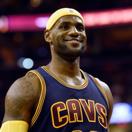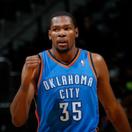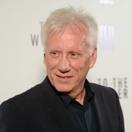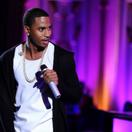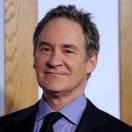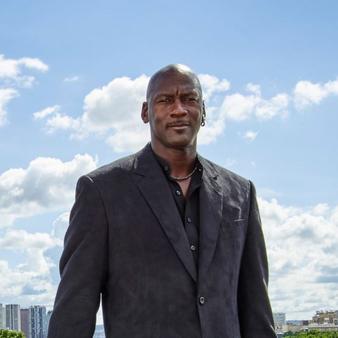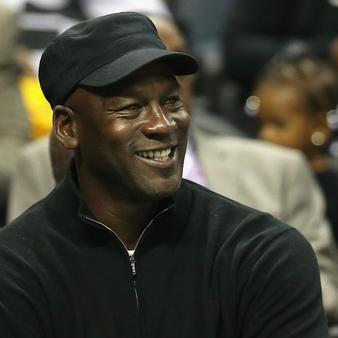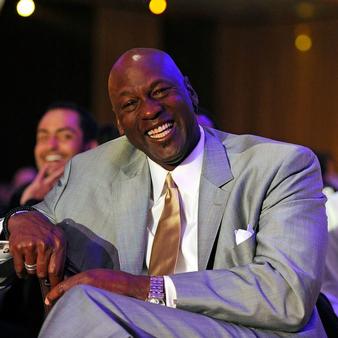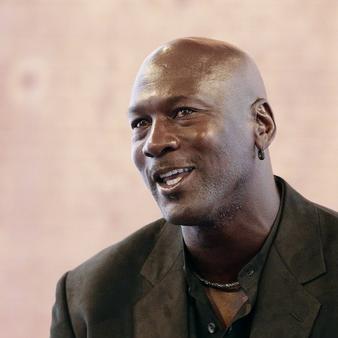What is Michael Jordan's net worth?
Michael Jordan is a retired American basketball player, team owner, product endorser, and entrepreneur who has a net worth of $3.6 billion. Michael Jordan is still, quite possibly, the most popular basketball player on the planet. Michael Jordan is the player and person against which all other up-and-comers are measured. The press is forever searching for the "next Michael Jordan," and every season, a new player is crowned (or saddled) with the title. In the meantime, Michael Jordan continues to enjoy his semi-retirement, his multiple endorsement and development deals, and his reputation as the greatest basketball player of all time.
Jordan led the Chicago Bulls to 6 NBA championship titles. He is a five-time league MVP. He holds the record for the highest career scoring average of all time and was inducted into the Hall of Fame on September 11th, 2009.
As you probably know, Michael did not earn billionaire status thanks to his NBA salary. During his NBA career, Michael earned a total of $93.7 million in salary. For comparison, by the time LeBron James retires, he will have earned over $500 million in NBA salary. Michael Jordan was highly paid for the NBA at the time, but he missed out on the mega contracts that came in the decades after his retirement. Michael was the first athlete in history to earn over $30 million per year in salary. He accomplished that feat during the 1996-1997 season when he earned $30.14 million in base salary. The following season, he earned $33.14 million. After adjusting for inflation, that's the same as earning $53.4 million today.
During his career and in the years since retirement, Michael has consistently been one of the highest-paid celebrity endorsers. To date, he has earned well over $2 billion from endorsement deals. And even though he has not played basketball professionally in nearly two decades, Michael earns $300-400 million per year today from endorsements and various other business ventures. Please note that this is more in a single year than he earned from his salary in 16 NBA seasons. Michael earns at least $60 million every year from Nike/Jordan brand royalties alone.
Even with endorsements and salaries, Michael actually achieved billionaire status thanks to his ownership stake in the Charlotte Hornets NBA team. He bought a majority stake in the team in 2010 for $175 million. Michael first officially achieved billionaire status in June 2014 after it was first learned that he had increased his ownership stake in the team, which was then known as the Bobcats, to 89%. In 2019, he sold a minority portion of his stake to an investment group in a transaction that valued the team at $1.5 billion. In 2023, he sold his majority stake in the franchise. We will outline this investment in greater detail later in this article.
"I've missed more than 9,000 shots in my career. I've lost almost 300 games. Twenty-six times, I've been trusted to take the game-winning shot…and missed. I've failed over and over and over again in my life. And that is why I succeed."
– Michael Jordan.
How and When Michael Jordan Became A Billionaire
After taxes, divorce settlements, and other lifestyle costs, Michael's net worth in 2006 was around $450 million. That same year, he bought a minority stake in the Charlotte Bobcats NBA team. At the time, he was the team's second-largest individual owner behind BET founder Robert L. Johnson. In 2010, Michael paid $175 million to buy out Robert's stake in the team. With this transaction, Michael owned 80% of the team.
In June 2014, it was revealed that Michael had increased his ownership stake again, this time from 80% to 89.5%. At the time, the newly renamed Hornets had recently been valued at $500 million, with $135 million worth of debt. Around this time, the Clippers, which had recently been valued at $500 million, sold for $2 billion. Assuming the Hornets at this point were actually worth $600 million, that meant Michael's stake after debt was worth $416 million, which, when combined with his $600 million outside fortune, made Michael Jordan a billionaire for the first time with a net worth of $1.016 billion.
In 2019, Michael sold a small piece of his stake to hedge fund managers Gabe Plotkin and Daniel Sundheim at a valuation of $1.5 billion.
In March 2023, rumors began to swirl that Michael was looking to sell his 80% stake in the Hornets, potentially at a $2 billion valuation.
In June 2023, news broke that Jordan had finalized the sale of the Charlotte Hornets at a $3 billion valuation. The sale ended his 13-year run as the majority owner of the franchise. The sale is to a group led by Gabe Plotkin and Rick Schnall, and Jordan is expected to keep a minority stake and presence with the team. Prior to the sale, Michael Jordan's net worth was $2.2 billion. That number assumed a $1.5 billion valuation of the Hornets (which is the value Plotkin paid in 2019). An 80% stake at $1.5 billion contributed around $1 billion to Michael's bottom line. Using the $3 billion valuation and assuming Michael maintains a 10% stake, Michael cashed out $1.1 billion but still owned a $300 million stake. As a result, Michael Jordan's fortune increased from $2.2 billion to $2.6 billion.
Wealth Milestones
We first added Michael Jordan to Celebrity Net Worth in September 2009 with a net worth of $500 million. He first became a billionaire six years later, in 2014. He first topped $2 billion in early 2020.
| Michael Jordan Net Worth Milestones | |
| Year | Net Worth |
| 2009 | $500,000,000 |
| 2013 | $650,000,000 |
| 2014 | $1,000,000,000 |
| 2016 | $1,100,000,000 |
| 2017 | $1,200,000,000 |
| 2018 | $1,500,000,000 |
| 2019 | $1,900,000,000 |
| 2020 | $2,000,000,000 |
| 2021 | $2,100,000,000 |
| 2022 | $2,200,000,000 |
| 2023 | $2,600,000,000 |
Early Life
Michael Jeffrey Jordan was born on February 17, 1963, in Brooklyn, New York. His mother, Deloris, worked in finance, and his father, James R. Jordan Sr., was an equipment supervisor. When Michael was a toddler, the family moved to Wilmington, North Carolina.
Michael played basketball, baseball, and football at Emsley A. Laney High School in Wilmington. He famously tried out for the varsity basketball team as a sophomore but was rejected for being "only" 5 foot 11. Enraged at the rejection, MJ worked himself to the bone to excel on the Junior Varsity team. Over the summer between his sophomore and junior years, he grew four inches and subsequently earned that coveted spot on the varsity squad.
Michael lit the varsity team on fire, averaging 25 points per game during both his junior and senior years. As a senior, he was selected to play in the 1981 McDonald's All-American Game, in which he scored 30 points.
College Career
Not surprisingly, Michael, who now stood 6 foot 6, was recruited by dozens of college programs, including Syracuse, UVA, Duke, and the University of North Carolina. He ultimately chose to attend UNC.
At UNC, he averaged 13.5 points per game and was named ACC Freshman of the Year, leading the team to the 1982 NCAA Championship against the Georgetown Hoyas. With 15 seconds left in the game, Michael hit a go-ahead basketball over Georgetown Center Patrick Ewing. This would turn out to be the game-winning shot. Michael would later reveal that this game and that specific shot was a major turning point in his personal confidence and future basketball career.

(via Getty)
NBA Career
Michael spent three seasons with the UNC Tar Heels, winning many accolades, including the Naismith and Wooden College Player of the Year awards in 1984. He left UNC one year early to enter the 1984 draft. Impressively, Michael returned to UNC in 1986 to finish his degree and graduated with a Bachelor's degree in geography.
Amazingly, he was not the first pick. He was the THIRD pick after Sam Bowie (#2) and Hakeem Olajuwon. Michael was chosen by the Chicago Bulls as the third overall pick.
Michael signed his rookie contract with the Bulls on September 12, 1984. The contract was a seven-year, $6 million deal, averaging to around $850,000 per season. In the year before Michael became a Bull, the team only sold out six total games. In Michael's rookie season, attendance doubled.
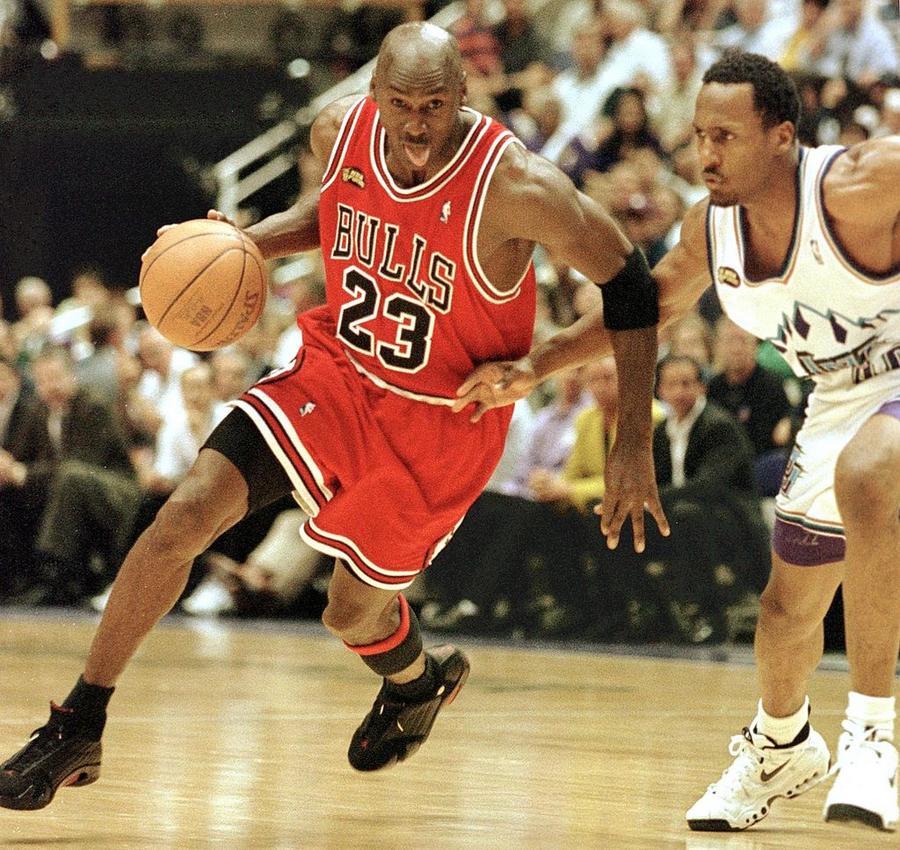
(MIKE NELSON/AFP/Getty Images)
At the end of his fifth season, Michael and Chicago agreed on an eight-year, $25 million contract extension. It was the largest transaction in NBA history up to that point. Michael's salary jumped to around $5 million per year as a result. When this contract was up in 1996, Michael signed a one-year $30 million deal. The next year he signed a one-year $33.14 million deal. The latter is worth the same as around $55 million today after adjusting for inflation.
Michael retired and returned to the NBA twice. He retired once to play minor league baseball. When he returned to the NBA a second time, he played for the Washington Wizards for two seasons.
As we've mentioned previously, Michael earned $93.7 million in total salary during his NBA career. After adjusting each year for inflation, he earned $161 million in salary. Below is a year-by-year breakdown of Michael's NBA salary history:
| Season | Salary | Inflation Adjusted |
| 1984-1985 | $550,000 | $1.4 million |
| 1985-1986 | $630,000 | $1.5 million |
| 1986-1987 | $737,500 | $1.7 million |
| 1987-1988 | $845,000 | $1.9 million |
| 1988-1989 | $2,000,000 | $4.4 million |
| 1989-1990 | $2,250,000 | $4.7 million |
| 1990-1991 | $2,500,000 | $5 million |
| 1991-1992 | $3,250,000 | $6.2 million |
| 1992-1993 | $4,000,000 | $7.4 million |
| 1993-1994 | $4,000,000 | $7.4 million |
| 1994-1995 | $3,850,000 | $6.7 million |
| 1995-1996 | $3,850,000 | $6.7 million |
| 1996-1997 | $30,140,000 | $50 million |
| 1997-1998 | $33,140,000 | $53.41 million |
| 2001-2002 | $1,000,000 | $1.5 million |
| 2002-2003 | $1,030,000 | $1.5 million |
| $93,772,500 | $161 million |

(Photo by Jonathan Daniel/Getty Images)
Nike Deal And Annual Royalties
Before Michael Jordan, the largest celebrity shoe endorsement contract in the world was James Worthy's $150,000 annual deal with New Balance. In 1984, Jordan shattered all endorsement records when Nike agreed to pay him $500,000 per year for five years. Jordan also received Nike stock options, which brought his total compensation to $7 million over five years.
Prior to signing the deal, Michael had never worn a pair of Nike shoes in his life and had been hoping to sign with Adidas, but Nike's offer was too rich to turn down and too much for Adidas to match.
When he debuted the shoes, they violated the NBA's uniformity restrictions. Nike paid all the league's fines and used the controversy to build excitement around the brand. The Air Jordan shoe first appeared in stores in March 1985 and two months later had sold over a million pairs. Within the first year, Air Jordan generated $100 million in revenues for Nike. Today, 58% of all basketball shoe sales are Air Jordans, and the brand generates over $2.5 billion in annual sales for Nike.
In 1992, Michael earned 25 cents for every Jordan shoe that was sold. Today, he earns $4 per shoe sold.
Between 2002 and 2012, Nike paid Michael $480 million in shoe royalties.
Today, Michael Jordan's annual Nike royalty check typically comes in around $80 – $100 million. However, in a number of years, his royalty check has topped $100 – $120 million.
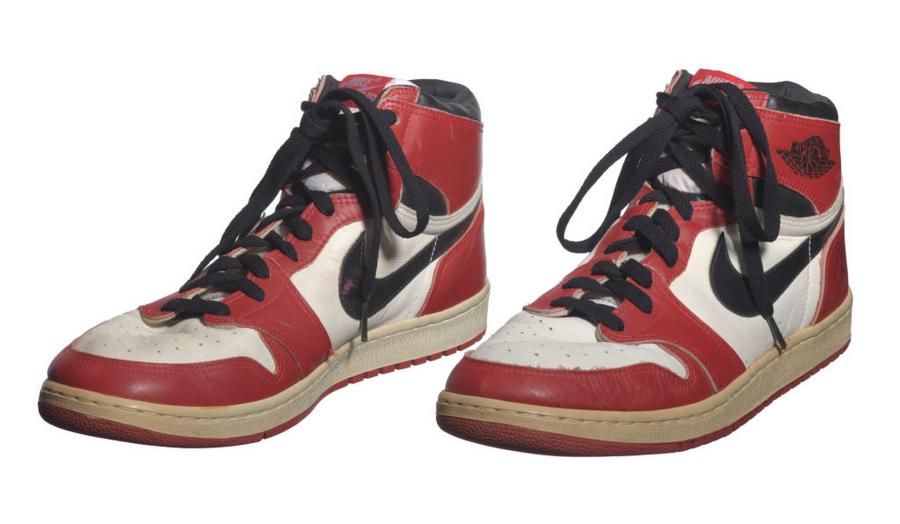
Game-worn Jordan 1s sold in 2020 for $560k (Heritage Images via Getty Images)
Endorsements
Throughout his impressive career and even through to the present, Michael Jordan has been a spokesman for many corporate brands, including Nike, Gatorade, Wheaties, McDonald's, Coca-Cola, Chevrolet, Ball Park Franks, Rayovac, Hanes, and MCI. Jordan also maintains deals with Upper Deck, 2K Sports, and Five Star Fragrances. He owns a car dealership and seven restaurants.
After Nike, one of his biggest early endorsement deals, one that would become a lifetime cornerstone for MJ, was with Gatorade. At the end of the 1989 season, Michael signed a 10-year, $18 million endorsement contract with Gatorade. Gatorade's famous "Be Like Mike" ad initially ran after the Bulls won their first of six titles. The Michael/Gatorade partnership brought both the brand and the man to even greater heights of popularity.
A 2015 lawsuit against a supermarket chain that allegedly used Michael's image without permission revealed that the superstar does not sign deals unless he expects to ultimately earn a minimum of $10 million from the partnership. We also learned that Michael, at one point, had turned down $80 million to endorse a line of headphones because he apparently doesn't like wearing headphones.
As of this writing, Michael Jordan has earned $1.4 billion from corporate partners during his career (before taxes).
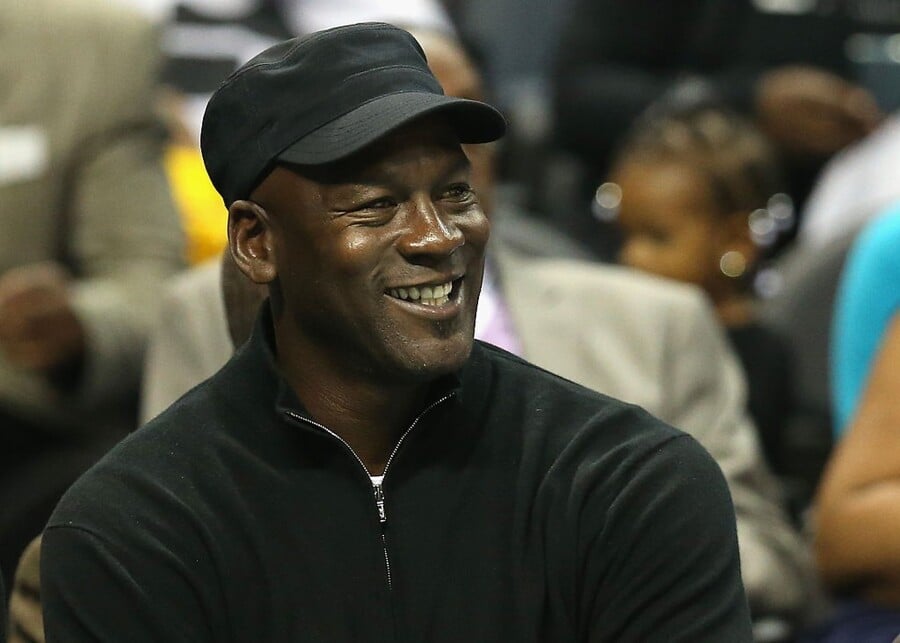
Streeter Lecka/Getty Images
Juanita Jordan Divorce Settlement
Michael married Juanita Vanoy in September 1989. They had three children together. When Michael filed for divorce from Juanita Jordan in 2002 after 13 years of marriage, he was ultimately forced to pay her a $168 million divorce settlement. It was one of the most expensive divorces in history. The settlement included cash, stocks, and the value of their various real estate holdings.
Michael has been married to Cuban-American model Yvette Prieto since April 2013. She gave birth to their identical twin daughters in February 2014. In 2019, Jordan became a grandfather when his daughter Jasmine gave birth to a son.
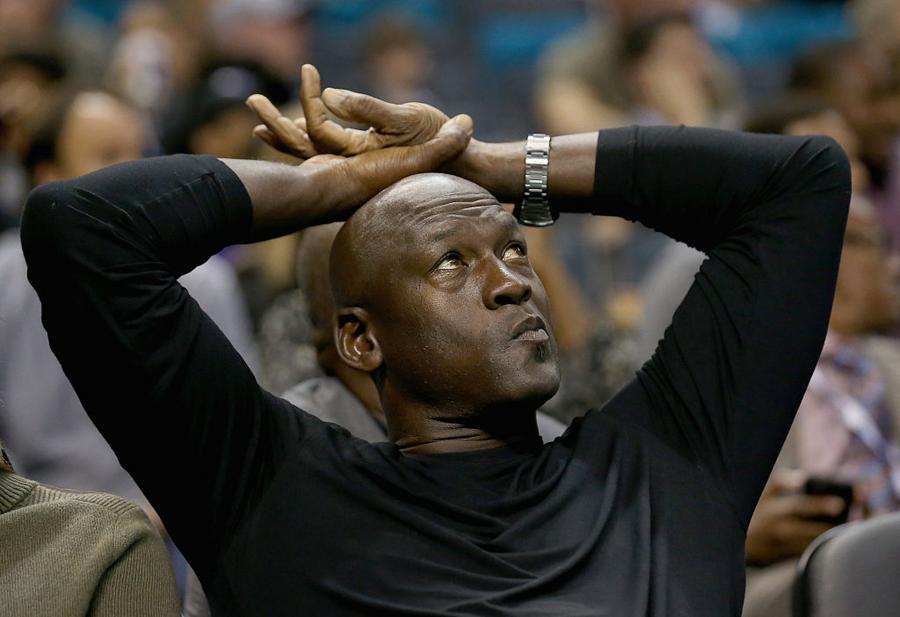
Streeter Lecka/Getty Images
Real Estate
Michael's primary residence today is a lavish mansion in Jupiter, Florida. The 26,000 square foot, 11-bedroom home sits on three acres located within Jack Nicklaus' ultra-exclusive Bear's Club community. He bought the lot in 2011 for $4.8 million, then spent two years and $7.6 million constructing a dream home.
In March 2013, Michael paid $2.8 million for a massive compound on a lake in Charlotte, North Carolina. Michael Jordan's Charlotte lake house is 12,310 square feet and contains six bedrooms and eight bathrooms. It sits on a nearly 50,000-square-foot lot right on the water. The interior features vaulted ceilings, marble and hardwood floors, multiple fireplaces, an elevator, and jacuzzi tubs in some of the bathrooms. There are stunning views of the nearby lake from almost every side of the house through floor-to-ceiling windows. Outside there is a pool, and a pier to a gazebo set out in the lake.
Michael also owns a luxury condo in the city so he can be really close to his Hornet and a property in Salt Lake City, Utah.
Chicago Mansion
In Chicago, Michael still owns a large mansion in Highland Park. The mansion was his home during many of his record-breaking seasons with the Chicago Bulls.
In 1991, Michael purchased a 7-acre plot of land in Highland Park, Illinois. He quickly set about building his dream home. The end result was a 32,683-square-foot mansion with nine bedrooms, 15 bathrooms, an NBA-quality basketball court, pool pavilion, 15-car garage, card room, tennis courts, PGA-quality putting green, cigar room, wine cellar… and so much more. Michael spent $50 MILLION building the estate.
Michael listed the house for sale in 2013 for $29 million. In May 2015 the price was reduced to $14.855 million. Not coincidentally, those digits add up to "23." It has yet to find a buyer as of this writing. Here are two video tours:
Private Jet
Michael Jordan owns a $50 million customized Gulfstream G550 private jet that shuttles him to and from houses all over the world. The jet's tail features Michael's famous "Jumpman" logo, and the registration number is a not-coincidental N236MJ (featuring both his jersey number and initials). According to its official records, Michael's jet is technically owned by a corporation called "Bank of Utah Trustee," which is a common way to own an asset through a trust. The jet was built in 2005 and features a Rolls-Royce BR 700 Series Turbo Fan engine.
Here is a video of the jet taking off from an airport in Canada:
Presidential Medal of Freedom
In November 2016, Michael Jordan received the Presidential Medal of Freedom from Barack Obama. Other recipients that same day include Vin Scully, Tom Hanks, Bruce Springsteen, Ellen Degeneres and Kareem Abdul-Jabar.

(Photo by Alex Wong/Getty Images)
Philanthropy
During his playing days, one of the biggest criticisms leveled at Michael was the fact that he may not have been doing enough with his wealth and power to support charity and other social causes. For example, in the 1990s, he was criticized for not weighing in on the North Carolina senate race between Harvey Gannt (an African-American) and Jesse Helms (a well-known racist). When asked about his decision to not take a side, Michael jokingly explained that he didn't want to endorse Gantt because "Republicans buy sneakers, too." Gannt lost the race and Helms went on to serve in the senate for 23 more years. Michael would later claim that his quote was taken out of context, but the damage had already been done.
One of Michael's big early forays into philanthropy was a $2 million donation, $1 million a piece, to the Institute for Community-Police Relations and the NAACP Legal Defense Fund.
In 2017 Michael pledged $7.2 million to go towards opening two health clinics for low-income and uninsured people in Charlotte. The first hospital opened in October 2019. The second opened in October 2020.
In April 2020, Michael announced he was donating all of his profits, estimated at $3-4 million, from "The Last Dance" docuseries to charity.
In November 2020, at the height of the COVID pandemic, Michael donated $2 million to Feeding America.
Michael really made a philanthropic splash in June 2020 when he and the Jordan brand announced a commitment to spend $100 million over ten years to "organizations dedicated to supporting ensuring racial equality, social justice and greater access to education."
On February 15, 2023, Michael announced a $10 million donation to the Make-A-Wish charity to mark his 60th birthday. It was the largest single gift in Make-A-Wish history.
8 Crazy Facts About Michael Jordan's Money
Michael Jordan made a grand total of $94 million in salary during his entire NBA career. He made much more than that LAST YEAR alone from his Nike royalties. And that doesn't even count endorsements for products like Hanes, Gatorade and much more. Or his ownership stake in the Charlotte Bobcats, which has been growing in value exponentially! Here are eight more crazy facts about MJ's money…

